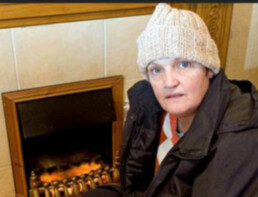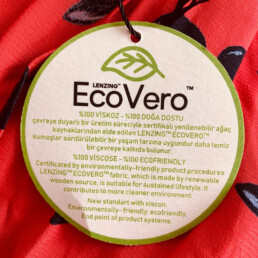Illness and Poverty – Margaret and The Pink Ladies
Inevitably, in the course of revamping my website, I’ve found myself thinking about the amazing projects and people I’ve had the pleasure of working with. One of them was cancer patient Margaret Kelly.
In 2010 I made Getting By a documentary about people living beneath the “poverty line” in Britain. At that time one fifth of the country’s 60 million population were considered to be in this bracket.
When I was asked to make the film by the Media Trust for the Community Channel I had no idea how significant the issue was. The statistics amazed me, but in the course of making the film I learnt just how thin the breadline is and how easily one can fall on the wrong side of it. I followed the stories of four people whose live had taken them there for very different reasons - a cancer patient, a separated father, a terminally ill student and a pensioner.
Margaret, from Londonderry, Northern Ireland was diagnosed with breast cancer in September 2009. One of the little known and under discussed effects of cancer is poverty. As a result of her illness, Margaret lost her job as a nurse, her husband left her and she had to survive on £60 a week. During a bitter winter she was forced to choose between buying food or heating her home. She chose to eat and as a result, while she was undergoing treatment and at her lowest point, she was without any heating at all. As depression set in, Margaret withdrew from the world. The situation became so hard to bear that she was on the verge of taking an overdose.
Luckily, in the end, Margaret admitted the extent of her suffering to friends and family who helped her through. She went on to lobby for fuel payments with the Pink Ladies, a support group which takes a community based approach to helping those effected by cancer. They took their campaign to the Northern Irish parliament at Stormont in October 2011.
Knowing Margaret’s energy and enthusiasm even with she was ill, if all the Pink Ladies are like her, there is no way the politicians could have said no.
Margaret showed my film, Getting By, to MPs to support the Pink Ladies’ cause.
Two months later the Pink Ladies were successful. The Stormont Executive announced that cancer patients, together with other people on benefits, would receive a special one-off winter payment to ensure they would keep warm.
This applied to 250,000 people across Northern Ireland, including 22,000 people in Derry.
I’ve been thinking about this story a lot recently. As the COVID-19 pandemic continues to wreak havoc around the world more people will fall into poverty and more people will experience feelings of loneliness. It makes the existence of community support groups such as the Pink Ladies even more important.
http://pink-ladies.co.uk/
Canopy and Forest-Free Fashion
For the 2019 series of earthrise we made a film about forest-free fashion. I’d always known that the fashion industry had a huge environmental footprint. After all, it’s worth $1.7 trillion, and much of those gains are because, every year, textile manufacturers make billions of garments which might only be worn once or twice before ending up in landfill.
But until I made this film I wasn’t fully aware just how huge the impact was. Every year 150 million trees are cut down to make the pulp which is the basis of viscose and rayon. Many of these are primary forest trees, thousands of years old and irreplaceable, which end up in all kinds of clothes from T-shirts to jeans.
The film focuses on the work of a hugely impressive NGO called Canopy. Set up by Nicole Rycroft around 20 years ago, its mission is to protect ancient and endangered forests through working along supply chains with companies to help them source products sustainably and with consumers to encourage them to use the power of their purse to effect change.
So many of our daily products come from trees. One study estimated that global toilet paper production wipes out about 27,000 trees per day – that's almost 9 million trees per year. And 3 billion trees are felled for packaging each year.
In Sweden, for example, Canopy is working with recycling company Re:Newcell. It’s invented a pioneering technology that promises to transform textile manufacturing. Recycled clothes are processed and pulped until they end up as cellulose sheets from which viscose can be made. And, on the high street, Canopy has partnered with over 170 fashion brands and is connecting them to sustainable suppliers.
I actively dislike shopping – I tend to re-patch and re-mend my clothes until I am forced to accept that they are beyond repair. But, when that happens and I need to buy something new, it’s reassuring to notice that there are more sustainable fabrics on the shop floor. Check out Canopy’s list of partners here before you hit the stores.
New earthrise Series
At the time of writing I’m really excited to be producing a new season of earthrise, which will be broadcast on Al Jazeera English early in 2021. It hasn’t been easy commissioning an international series in the middle of a pandemic, with all the obstacles this presents for filming, but I’m hopeful we’ll pull it off. And I’m determined to make it happen.
The Covid-19 pandemic has highlighted how urgent the need to tackle the environmental crisis has become. Our wanton destruction of the natural world has brought wildlife and humans in closer proximity than ever before, making the spillover of viruses from animals to humans inevitable.
But the pandemic has also given real glimmers of hope that long-lasting and positive change is possible. People are becoming increasingly aware of the link between planetary and human health and, therefore, of the urgent need to protect the natural world. The cries – from business leaders, politicians, scientists, citizens - to ‘build back better’ and to invest in green, clean economies are becoming louder. The kinds of solutions we have been talking about for years at earthrise are firmly on the table.
Here are a couple of recent articles with links to some previous earthrise films that speak to the present moment:
Five Environmental Films to Watch on Earth Day
Five Films to Watch on World Environment Day
I’m looking forward to the next series and to exploring more solutions being developed by people around the world who are committed to protecting life on earth and turning the climate crisis around.


